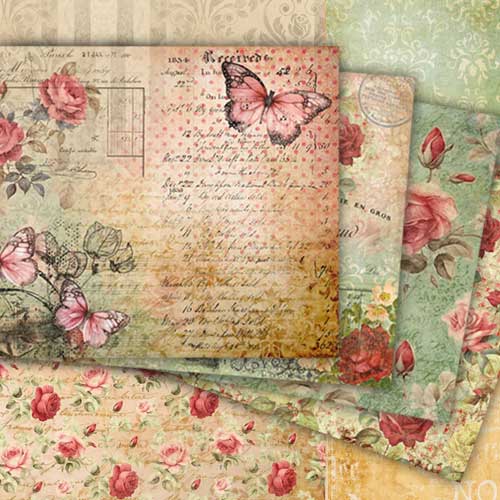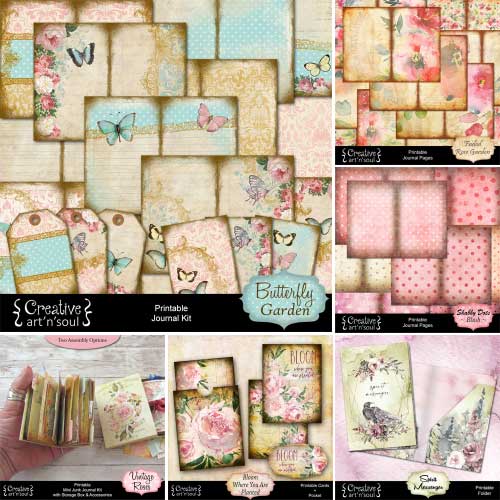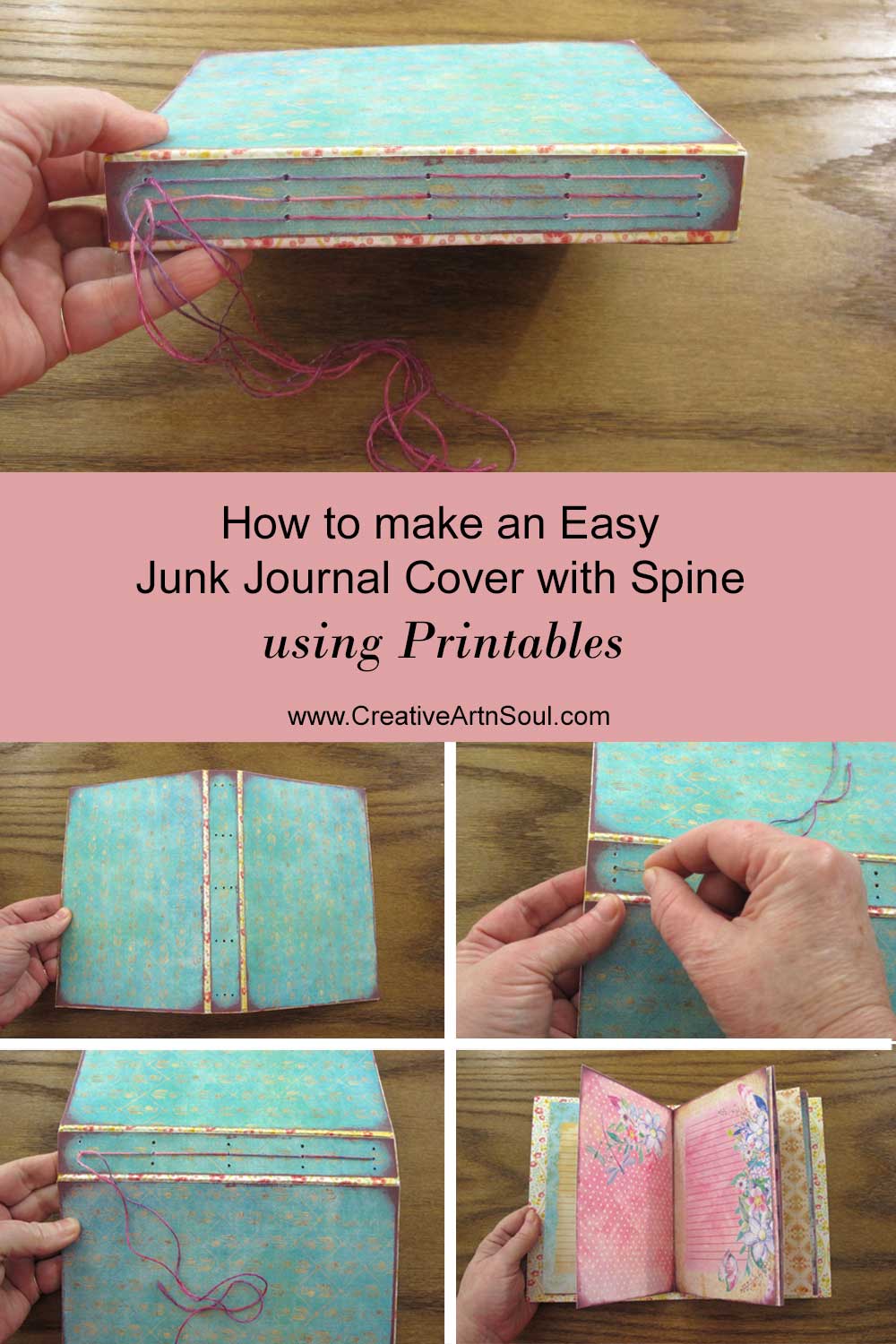
Learn just how easy it is to use printables to make a junk journal cover with a spine.
There are many different ways to make junk journals but if you are making a journal that has lots of pages is is quite thick, you’ll want to make sure that you use a rigid cover. Using a rigid cover will ensure that your pages are protected and your journal doesn’t get damaged.
In this tutorial I’ll be showing you how to make a rigid junk journal cover using printables and a cereal box. You could use any type of printable pages, but for this particular junk journal cover I’m using the printable covers that are included with my Taking Flight printable journal kit which you can find here in my online store.
Supplies & Resources for the Junk Journal Cover
Make the Junk Journal Cover
To get started making the junk journal cover, first print out the cover page and the spine of your Printable Journal, and trim to size. If your printable journal kit doesn’t include a cover or spine section, you could print any of the journal pages to use as a cover, and cut a narrow piece to use as a spine section.
The width of the spine will be determined by the number of signatures (sets of pages) you plan to use. For this journal, I’m using three signatures.
Recommended Papers
When making a rigid junk journal cover, use cardstock for the printed section which will be more durable than using copy paper.
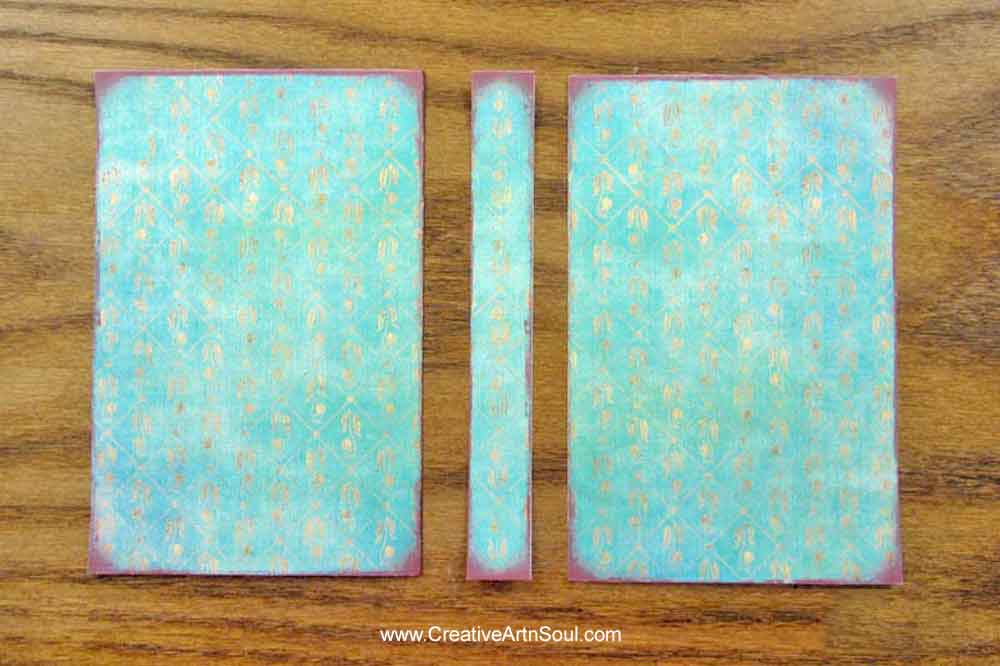
Cut a piece of cardboard the same size as the total width and height of the cover. Make a crease in the cardboard down both sides of the spine using a paper creasing tool.
I used an old pizza box which already had a narrow creased area down the center. The creased center is slightly wider than the printed spine however it won’t make much difference.
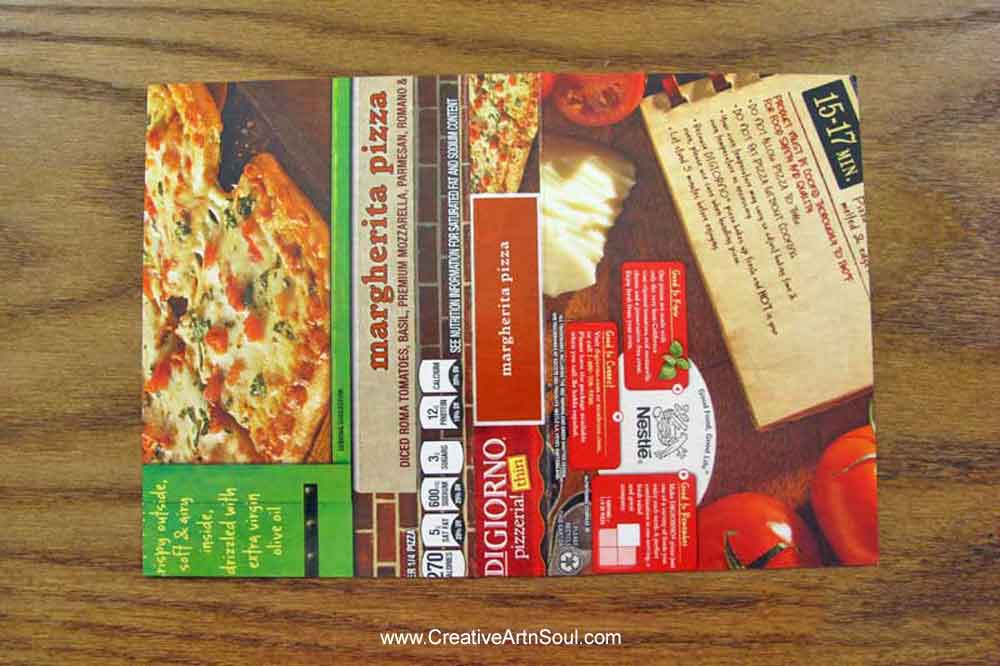
Cut a piece of decorative paper that is about 1″ larger in width and height than the book cover. I used a piece of scrapbooking paper which wasn’t wide enough to cut in one piece, so I cut it out in sections – back and front cover, and spine.

Glue the Paper to the Cardboard
Glue the decorative paper to one side of the cardboard. This will be the inside of the cover. I like to use Yes Paste for gluing paper because it doesn’t wrinkle or bubble like some other glues and mediums, when gluing large sections of paper.
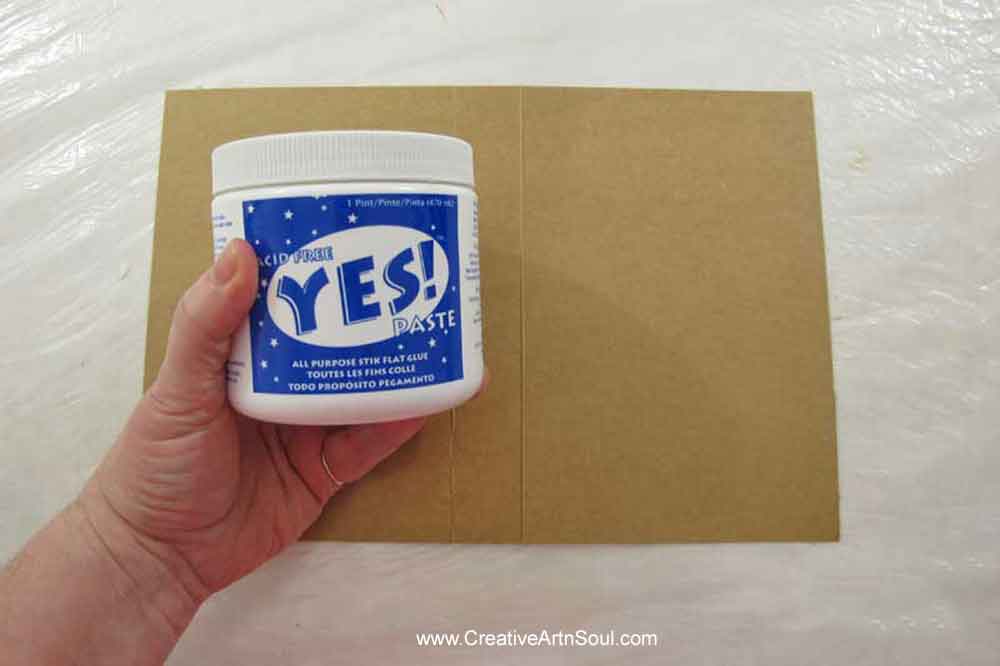
Completely cover one side of the cardboard with glue. Yes Paste is very thick so I like to spread it using an old credit card.

Once the glue is applied, position the decorative paper. Cover the spine section first.

Then add the cover sections. If necessary, burnish the paper using an old credit card to remove any wrinkles. If using Yes Paste, the paper won’t need to be burnished too much and it will lie perfectly flat.
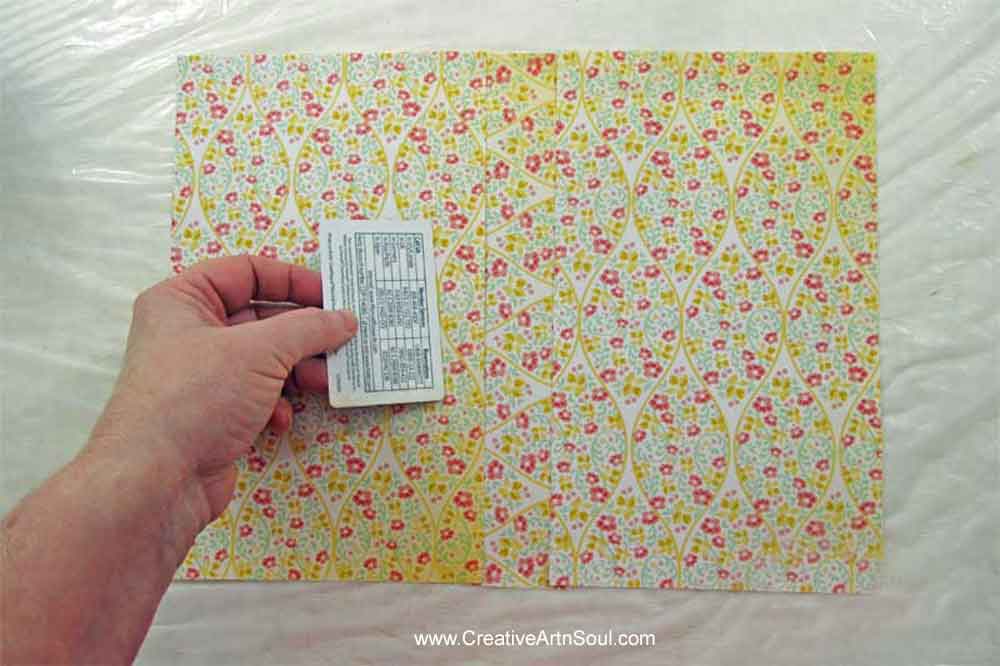
Make sure to add some glue underneath the overlapping edges of the paper.

Fold the edges of the decorative over to the other side. Fold the corners in, or cut them on a mitre.

Glue the edges.

Cut another narrow piece of decorative paper to cover the outside spine area. Apply some glue and center the paper over the spine area.

Add glue to the left and right sections, and position the printed covers.
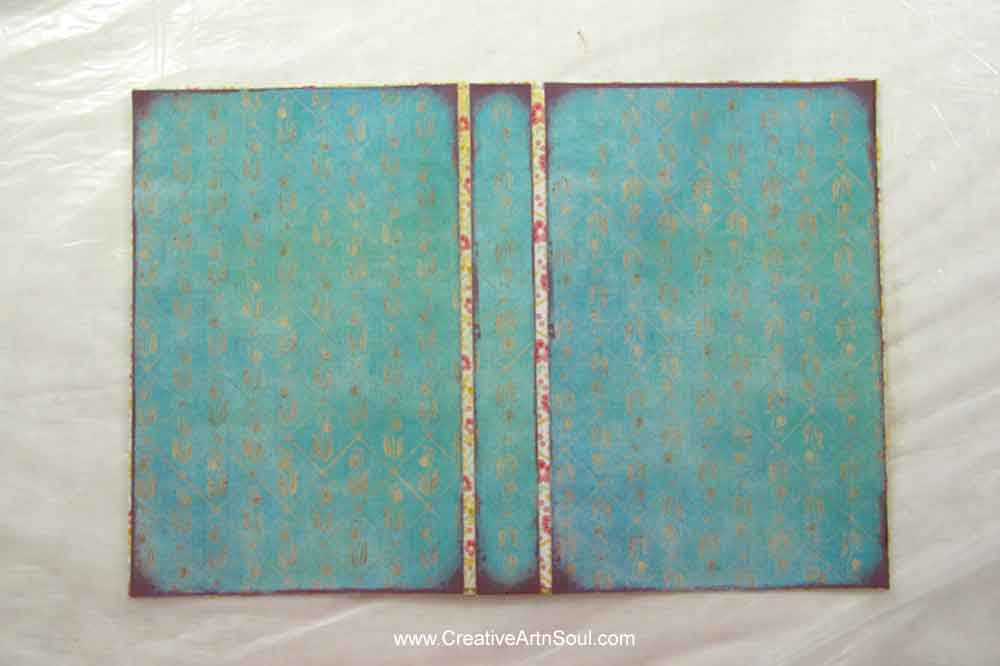
Fold the book into shape and allow the glue to dry.

Make the Hole Templates
To make a signature hole template for the cover, measure the width and height of the spine and cut a piece of paper the same size. Mark rows of dots about 1″ in from each end with 3 or 5 rows spaced equally apart along the length. The number of holes across will depend on the width. Usually these are spaced about 1/4″ apart.
This journal is about 8″ high by 1″ wide so I’m using 5 rows along the length to sew a 5-hole pamphlet stitch, with 3 sets of signatures spaced 1/4″ apart. Use a binder clips to hold in place at the top and bottom.

Using an awl, punch all the holes.

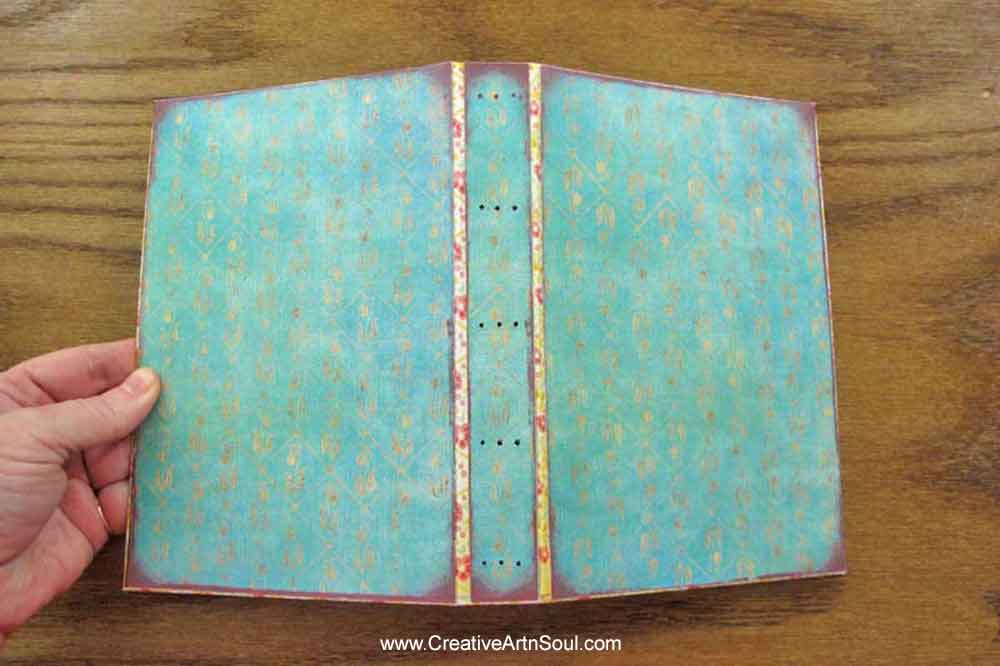
For the signatures, cut a piece of paper the same length of the pages by 1″ wide, fold in half and press a crease down the middle. Mark one set of holes down the length in the same position as the holes for the cover hole template.

Make the Signatures
For a writing journal, print the pages onto good quality copy paper. Use cardstock when printing junk journal pages.
For a writing journal using copy paper, you should be able to use 5-6 pages per signature (or even more depending on the thickness of the paper). For a junk journal, you should be able to use 3-4 pages because the pages are thicker.
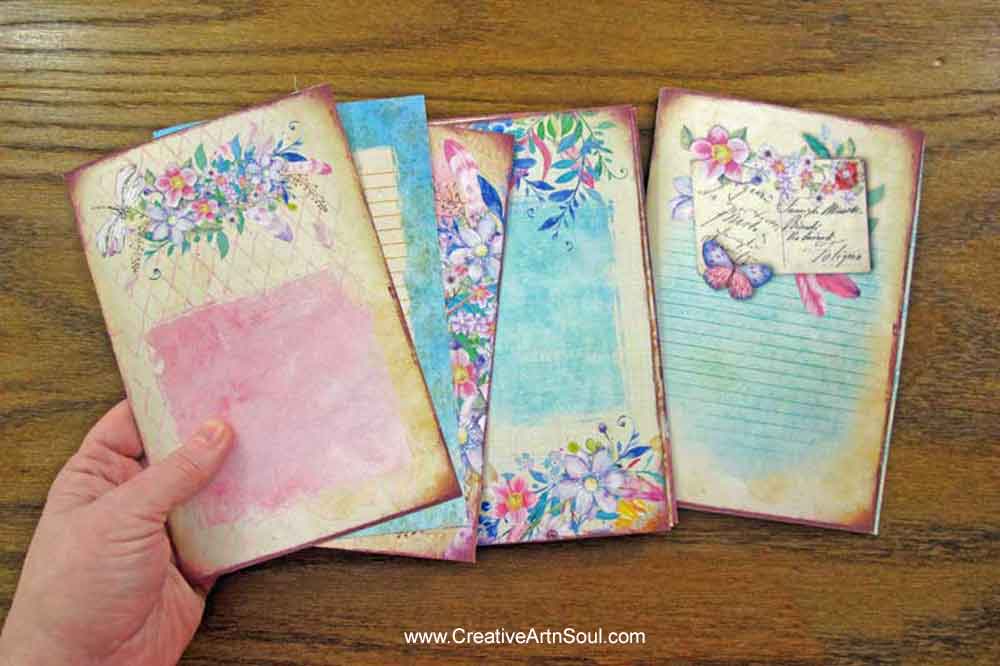
Position the template inside the signature along the fold, and using an awl punch all the holes.

Easy Junk Journal Cover: Assemble the Journal
Cut a piece of strong embroidery thread or book binding thread approximately 36″ long. Using a large embroidery needle start sewing at the center top on the outside. Leave a tail approximately 10″ long and push the needle through to the inside.

Push the needle back through the next hole to the outside.

Continue sewing in this way to the bottom …
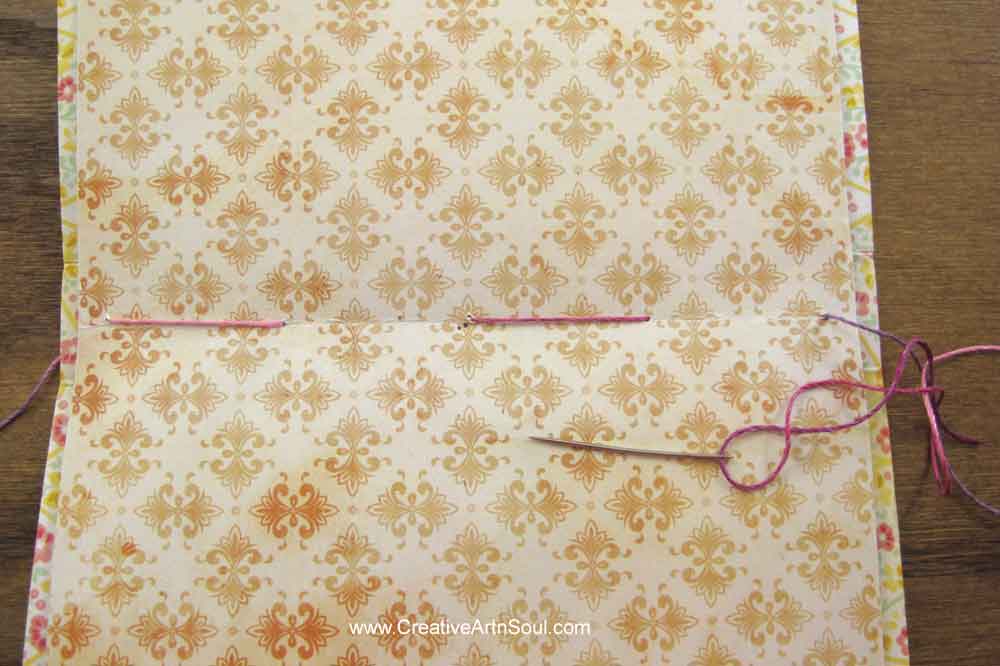
… then back up to the top. Tie off in a knot on the outside of the cover. The long tails can be used to add beads or charms that can dangle on the outside. Or tie a charm to the end and flip them over the top of the spine and use them as bookmarks.
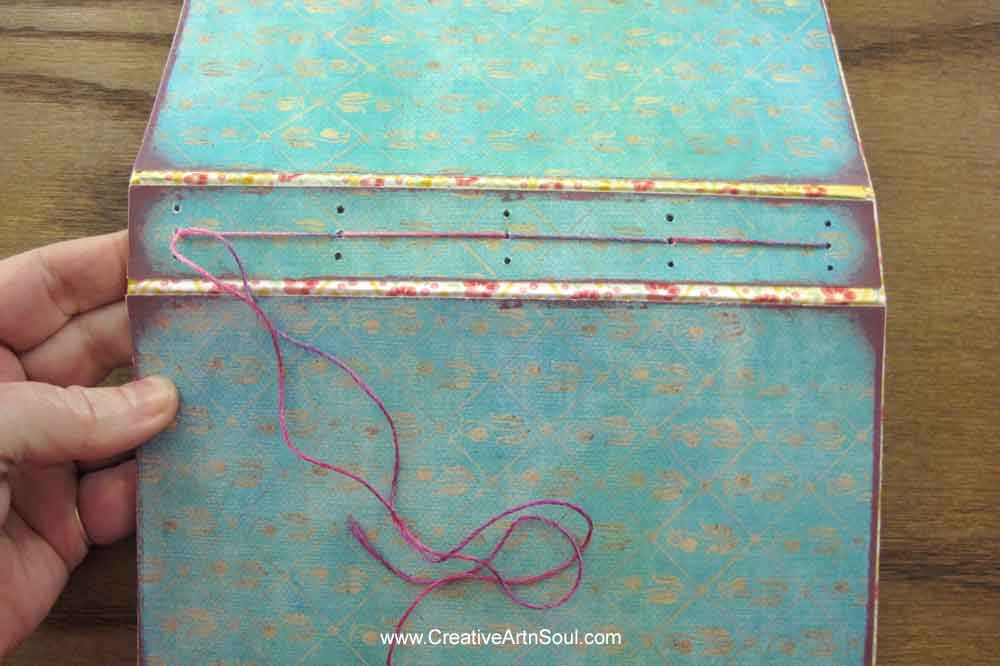
Sew the other signatures in the same way.

And you’re done!

Explore These Creative Junk Journal Resources
Save this pin to your favorite Pinterest board!


